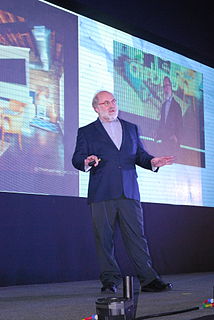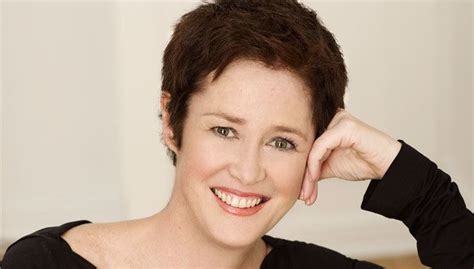A Quote by Thomas Frey
Learning isn't meant to be confined to a box, and students virtually never 'master' a topic simply by taking a class.
Related Quotes
Arriving to class late is disruptive of the learning process. I think that it is disrespectful to both the instructor and the students. I generally find a problem with students being tardy to my 9:10 a.m. class, in which students would come in thirty minutes late to this fifty minute class. I started locking my door at 9:15 second semester.
Where I grew up, learning was a collective activity. But when I got to school and tried to share learning with other students that was called cheating. The curriculum sent the clear message to me that learning was a highly individualistic, almost secretive, endeavor. My working class experience...was disparaged.
A professor was telling students about his colleagues class. Students in the other class had taken to tossing erasers at the clock. Each precise hit caused it to jump ahead one minute. Before class one morning they succeeded in advancing the clock by ten minutes. Since the new time indicated that the professor was beyond the accepted starting time, the class left. The professor never said a word about the incident. However, he presented the class with a killer of a final exam. As the students labored to finish in the allotted time, the professor amused himself by tossing erasers at the clock.
What is wrong with encouraging students to put "how well they're doing" ahead of "what they're doing." An impressive and growing body of research suggests that this emphasis (1) undermines students' interest in learning, (2) makes failure seem overwhelming, (3) leads students to avoid challenging themselves, (4) reduces the quality of learning, and (5) invites students to think about how smart they are instead of how hard they tried.
It is learning how to stand alone, unpopular and sometimes reviled, and how to make common cause with those other identified as outside the structures, in order to define and seek a world in which we can all flourish. It is learning how to take our differences and make the strengths. For the master's tools will never dismantle the master's house.
Public education for some time has been heavily focused on what curricula we believe will be helpful to students. Life-Enriching Education is based on the premise that the relationship between teachers and students, the relationships of students with one another, and the relationships of students to what they are learning are equally important in preparing students for the future.
As a teacher with over thirty years of experience, I've found that students are hungry for material that goes beyond simply learning tune after tune. In fact, my students suggested a good portion of the material presented here. This lesson should be an indispensable aid to the aspiring bluegrass banjoist.
In a single generation, the Internet has given to virtually every person on the face of the earth the ability to communicate with fellow human beings on virtually any topic, at any time, and in every nook and cranny on the globe. This magnificent invention has done this without succumbing to government control.
Education is not confined to books, and the finest characters often graduate from no college, but make experience their master, and life their book. [Some care] only for the mental culture, and [are] in danger of over-studying, under the delusion . . . that learning must be had at all costs, forgetting that health and real wisdom are better.
































